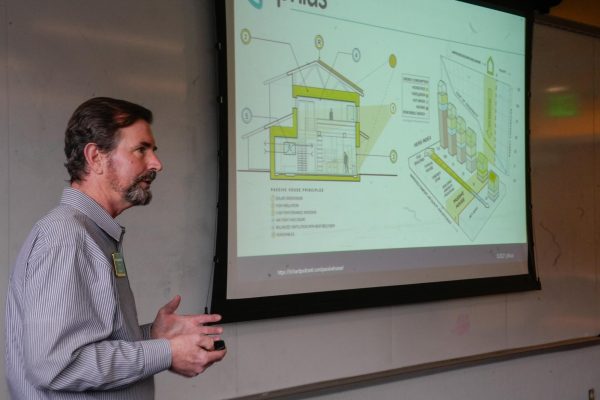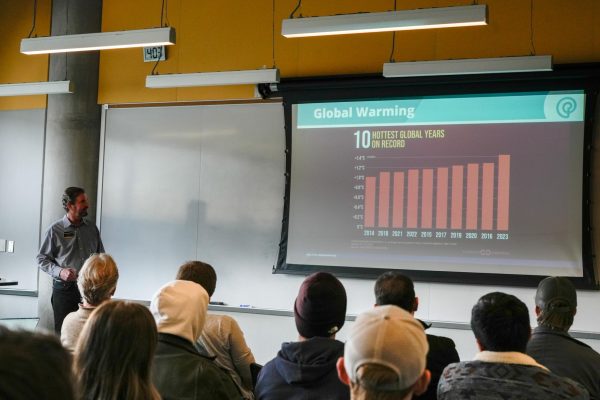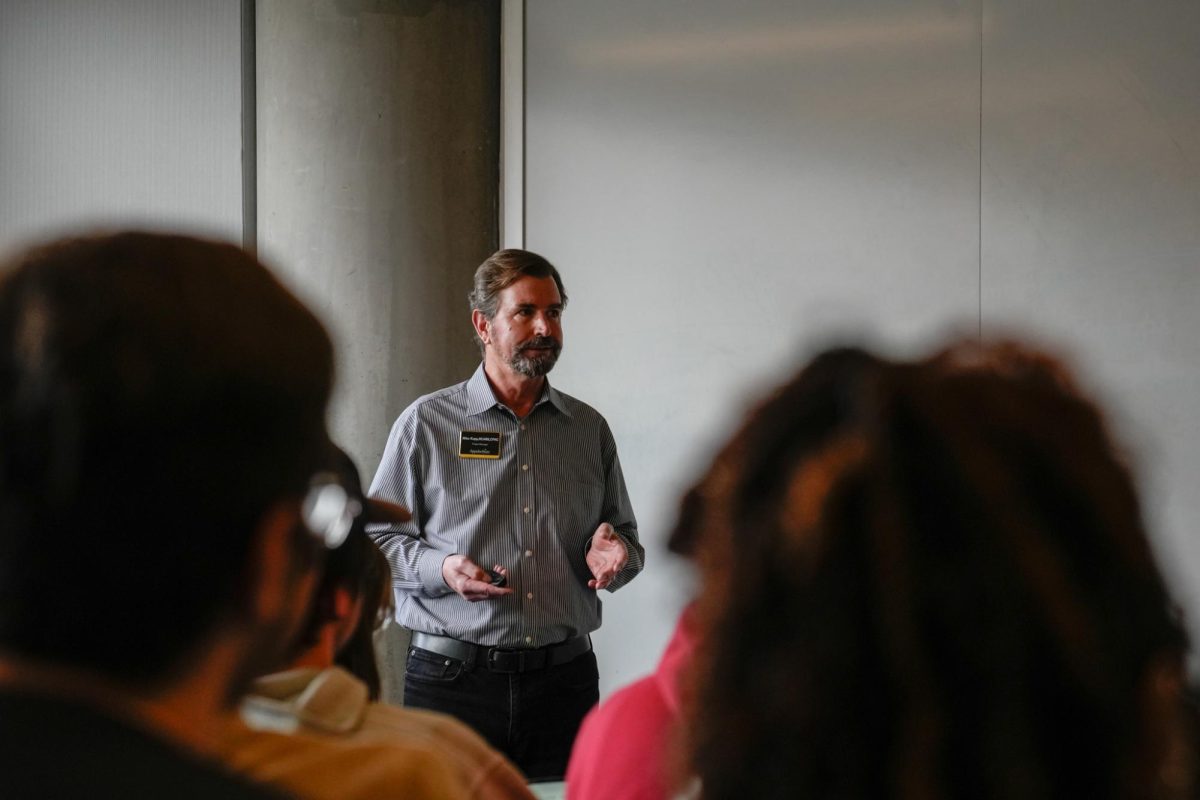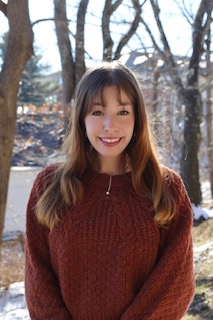“We have just experienced the hottest 10 years of our existence,” Mike Kapp said. “Things are moving in the wrong direction and we need to do something about it.”
Kapp presented on Tuesday afternoon as part of The Sustainable Energy Speaker Series, an ongoing initiative to foster awareness and understanding of contemporary energy matters. During the series, he introduced Phius: the cost-optimized, climate-specific passive building standard approach to zero energy.
Kapp is a Phius Certified Consultant and project manager under the Planning, Design and Construction office of App State. He began the discussion with an emphasis on climate change, or as Kapp said, “an existential threat.” Then he shared the impact that the Passive House Institute US, or Phius can cause.
Phius is a non-profit organization committed to decarbonizing the built environment by making high-performance passive building the mainstream market standard. The building projects following the Phius protocol are “becoming more comfortable, more healthy, more energy efficient, more resilient in the aftermath of severe weather events, and less costly to operate and maintain over the life of the building,” Kapp said.

There has not been Phius certification on any projects at App State or the Hickory Campus but, “with every funding cycle we are making improvements to the building’s energy efficiency while delivering program space required to provide a comfortable environment for learning to the regional students around Hickory,” Kapp said.
Kapp said that his team has implemented energy efficiency projects not related to Phius and prepared the Hickory Campus building to receive about 10,000 square feet of solar photovoltaic array on the south roof.
“It’s a matter of time before that project comes to completion,” Kapp said.
“Whether or not we pursue Phius certification on any projects at App State, I am constantly looking for opportunities to implement Phius’ design principles rooted in cost-effective building science measures,” Kapp said.
Zero carbon emissions are Phius’ goal. According to the Phius website, “Carbon neutrality is one of our prime directives at Phius, and with our climate-appropriate energy targets and electrification requirements constructing a building to our standards goes a long way in reducing a person or organization’s carbon footprint.”
The Phius website says passive building principles include using continuous insulation, high-performance windows and doors, an airtight building envelope, balanced heat and moisture recovery ventilation and minimizing space conditioning systems.
“Buildings designed according to Phius passive house standards provide energy savings of 40-60%, compared to regular buildings,” according to the Phius website.
The presentation mentioned the increasing building climate.

“Over the next 24 years there will be 2.5 trillion feet of buildings constructed in cities worldwide,” Kapp said. “We need to get energy use intensities of our buildings down.”
According to the Phius website, the passive standard is the smartest path to zero energy. “It guarantees projects are built right, right from the start by reducing the energy requirements first.”
States including Colorado, Massachusetts and New York have already adopted Phius, Kapp said.
According to the Phius website, a passive building typically costs about 3-5% more than a conventional home.
“Yes, it’s expensive, but people get their money back eventually with the amount of energy saved,” Kapp said.
While projects like Phius are more expensive than standard projects, “the long-term cost implications of climate change are horrendous,” Kapp said.
Kapp defined resilience as building an environment in which people can survive the extreme events that are a result of climate change.
Kapp has served as a passive house consultant for 10 years and he believes Phius will be the future building energy code. He said Phius is now an international movement. Saying “once you start building well-built buildings, you keep building well-built buildings.”
“Net-zero energy consumption and zero-carbon emissions are the goals, but I am well aware that it will take some time to get there,” Kapp said. “I feel confident that App State is moving in the right direction.”
The Sustainable Energy Series is a collaboration between the Appalachian Energy Center and the Department of Sustainable Technology and the Built Environment.




Debbie Gordon • Feb 7, 2024 at 12:44 pm
Care First Animal Hospital in Raleigh, NC won The City of Raleigh Sustainability Award by utilizing PHIUS principles for its new location on Oberlin Road. Care First welcomes App State Vet Tech students to come for a visit. Contact Debbie Gordon 919-523-0441. Thank you Mike for spreading the word and making it understandable and easy to do. Onward! Debbie